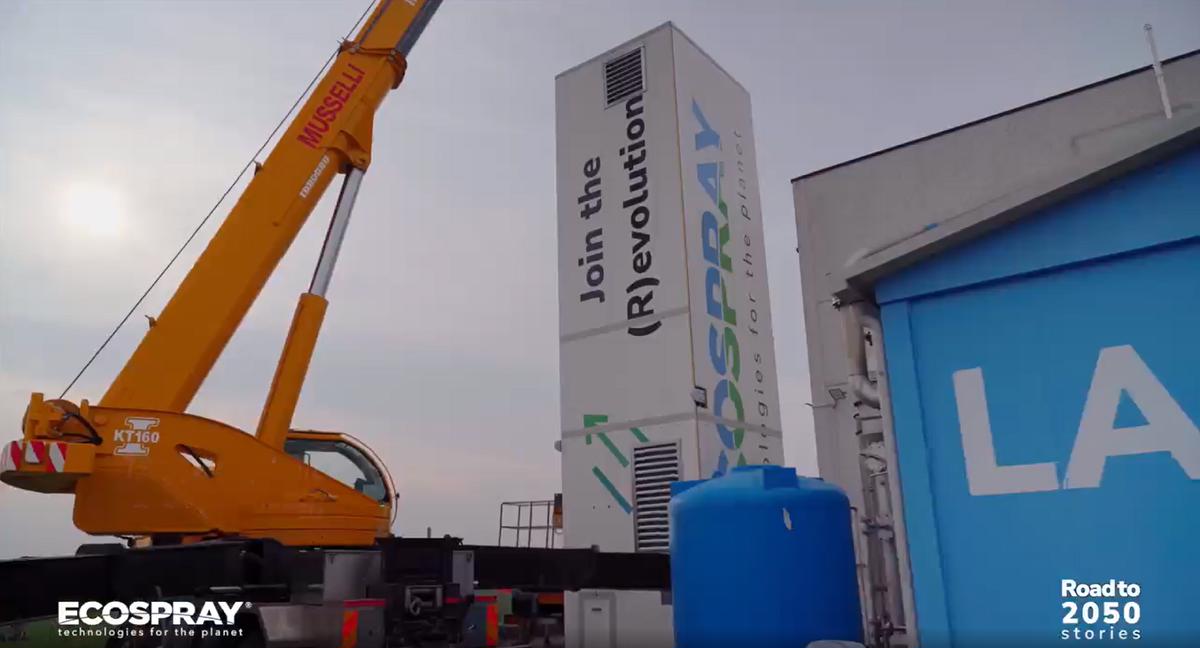Ecospray to start offering carbon capture systems from 2024
Italian technology company Ecospray has announced the finalisation of two carbon dioxide (CO2) capture technologies for use in the maritime industry in a seminar in Athens.
 PHOTO: Ecospray’s carbon capture pilot plant. Ecospray
PHOTO: Ecospray’s carbon capture pilot plant. Ecospray
Both technologies utilise chemical absorption – specifically with amines or calcium hydroxide – to capture CO2.
The technologies “will enable the capture of up to 80% of the CO2 emitted during ship operation in specific conditions,” Ecospray claims.
The company expects to commercially launch these technologies in the first quarter of 2024.
Testing phase
The laboratory phase of the testing was carried out in collaboration with the University of Turin.
Ecospray developed a pilot plant to test the technologies, and was evaluated at the Ecospray testing facility. Following that the pilot plant, it was installed on a commercial vessel for a period of about two months to test the technologies under real conditions.
This testing phase, which was conducted this year, largely achieved its objectives with “capture efficiencies of up to 80%,” Ecospray says.
The data collected during the testing phase will further help the company “to optimize the design of the components and their selection, as well as improve the process,” the tech firm adds.
The technologies in use
One of the technologies utilises an amine solution to chemically absorb CO2. Amine is a type of compound that is derived from ammonia. The feasibility of the process, which differs from the conventional process used for land applications, was confirmed by testing in the pilot plant.
The process is easily applicable in the marine sector and can lead to energy savings of 10-15% compared “with the conventional high-temperature regeneration process,” Ecospray claims.
The other technology uses lime milk – a white liquid made of calcium hydroxide and water – to convert CO2 into calcium carbonate – an inorganic salt.
“Very high levels (90-95%) of reagent conversion were achieved in the testing phase of the technology,” the company asserts.
A reagent is a compound or mixture added to a system to start or test a chemical reaction.
A third technology in the making
Ecospray is developing a third technology, which intends to capture CO2 using molten carbonate fuel cells (MCFCs). MCFCs are high-temperature fuel cells that use carbonate salts of alkali metals as electrolyte.
The technology is being developed by CapLab – a joint laboratory of Ecospray and University of Genoa. The company anticipates industrialisation phase for this technology to start in 2025.
“Carbon Capture technologies can contribute significantly to achieving the 'zero emissions ofCO2’ goal by 2050 in the shipping sector,” Ecospray’s director of B.U. Marine Filippo Lossani says.
By Tuhin Roy
Please get in touch with comments or additional info to news@engine.online






